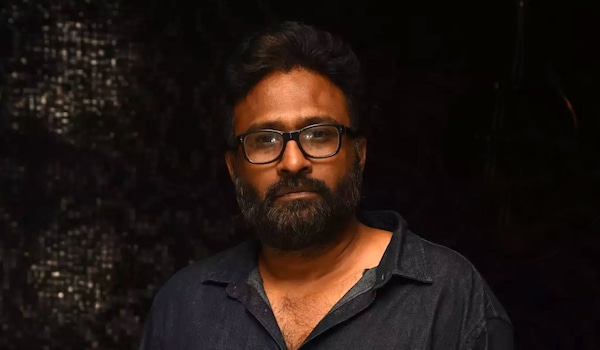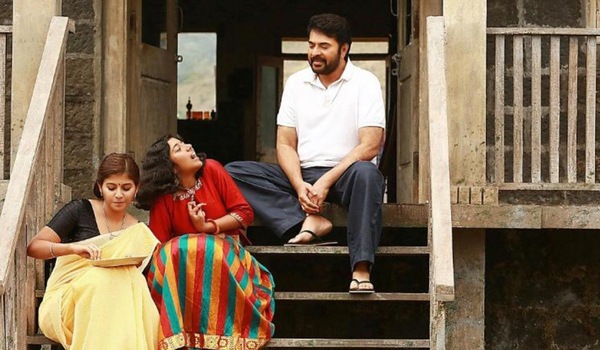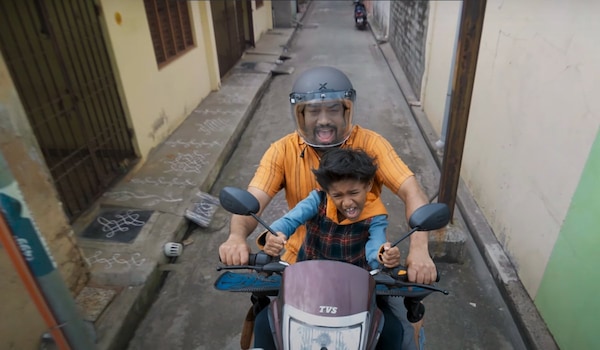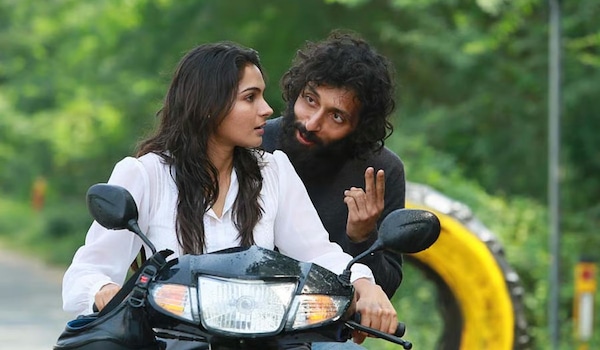Paranthu Po director Ram: The nature of an artform like cinema is to be progressive | EXCLUSIVE
Paranthu Po director Ram: His latest project, Paranthu Po, explores parental dynamics, highlighting that all parents strive to do their best. It is set to release on July 4

Last Updated: 07.41 AM, Aug 05, 2025
A look into the director Ram's filmography is something that is both endearing and powerful. It depends on how and from what point of view you look into it. The softer viewpoints being when it explored the nuances of a father struggling to provide everything, he can to his disabled daughter in Peranbu, or when he observes in Thanga Meenkal that only fathers of daughters understand that a kiss need not be just lust after all. But there is also a strong expression and statement about the evolving capitalist and misogynistic world in films like Kattradhu Thamizh and Taramani. So where does he see the place for films as an entity in this world?
“This century’s ratchasa (demonic) artform is cinema. And by that, I mean that cinema is that artform which is seen and interacted with by a majority. Many even understand how to consume visuals, thanks to the evolving technology that makes them understand about each shot. Films are part of life, and the references is there in every day,” Ram says.
Paranthu Po director Ram interview:
Going a step further, Ram also adds that there are people from all walks of life, and for some, cinema can be that therapy for those who come from the harsher side of life. “More than a relief, it would be therapy for them. I have seen people who watch comedy of Vadivelu sir, or entertaining films by Vijay, Ajith, Shah Rukh Khan. They are sort of healers and therapists even as they might not be aware.” But at the same time, Ram also says cinema also becomes a political movement when it addresses people’s problems. “Cinema keeps talking about love, lust, friendship, family, relationships. Of course, there are regressive films, but the nature of an artform is to be progressive. In one way or the other, cinema searches for society’s well-being, it is a therapy, and cinema is all.”

In his films, Ram is quite clear about what it wants to talk about. Being about globalisation in Kattradhu Thamizh or that of a helpless father wanting to bring the best for his paralysis-affected daughter in Peranbu. But what is the starting point for him? “It is everything and everywhere. Sometimes it’s inspiration and personal conflict, other times a hearsay, incident or the poetry you read somewhere. But once that idea comes, to make it a film or not has many deciding factors. Not that everything is possible to be made into a film because this medium has some limitations. Can we design and position it, what is the budget, and can we make a film and what way is it unique, are many deciding factors,” he adds.
‘To me, all parents are good parents’
Coming to Paranthu Po, Ram says he is a father, he has a father, seen a lot of fathers, witnessed middle class families wanting to achieve a lot, the sacrifices, is there a good/bad parent/child, were all the starting points for the film. “To me, all parents are good parents and trying to do their best.” As someone who likes to be surrounded by children, Ram says that they are his stressbusters, and recalls the times when he likes to converse with friends of his children, as his way of understanding the changing world.

Ram who believes that all men chauvinists, yet have come up with empathetic portrayals of women in his films. The director understands that though he does not have lived experience of a woman, the interactions in his life, the events he has witnessed, and that those happened around him. “Probably a woman could have made it better than me. For example, Andrea used to ask me why should he accept the guy (in Taramani). At the end of the day, there also raises a question to which guy a girl can go to? Like a known devil is better than an unknown angel. Probably, a woman filmmaker would reject any devil. I strongly feels that everyone needs a companion, and I don’t like someone living alone. It is my perspective as a writer and it might vary to someone else. I got both kinds of reception for that ending.”
‘Selling a film is harder than making telling a film’
It was seven years back when Ram said that releasing a film is difficult that making it. And even now, he stands by his stance by saying ‘selling a film is harder than telling making a film’. He says, “People still remember films like Taramani, and Peranbu which is also a success. But at the same time, a financial success is also important. But it sometimes, the information on the film has to also reach the audience the right way. Films like Kudumbasthan and Tourist Family ran successfully. It is not a big hero films and successes of those films is a morale boost to producers, it gives confidence.”
Ram believes that one should have conflict and conversation with the contemporary world when making films. “The world witnesses a change of 200 years in 20 years. This change happens only in rapid change and generations keep coming, it is important talk about the conflict that drives the conversations. The universal truth remains the same, but the perspectives we see changes. So, when we have conflict and conversation with the contemporary world, you become much more progressive person, can unlearn, and be fresh and young,” he explains.

It might be seven years since a Ram film came, but the filmmaker says that his observations around him as keep him going with the creative fodder. “Questions keep coming, and figuring out answers take us to stories. You understand that humans are beautiful much like any other elements of nature. Our job is not to antagonist the world, but understand them from their perspective. Still people write letters to me, about Taramani and Peranbu. So, you understand that you are still connected to the contemporary world.”
Ram says that while his film might come after a long gap, he also says that it takes some time to design a film that one likes to do. “We have to sell our own film, which is important. I do not miss on anything, and life is busy because there is something happening every day. Probably I might miss out on a film release and the debates around that, because every creator who wants an appreciation,” he adds.
Paranthu Po has had festival release earlier at International Film Festival of Rotterdam, and Ram says that he has not provided different versions just to cater to audience her and in the festival circuit. “Everyone watches the film the same way. You don’t need to make films for them, you make a film from your sense and aesthetics, and they take it if they like,” he concludes.
Subscribe to our newsletter for top content, delivered fast.





